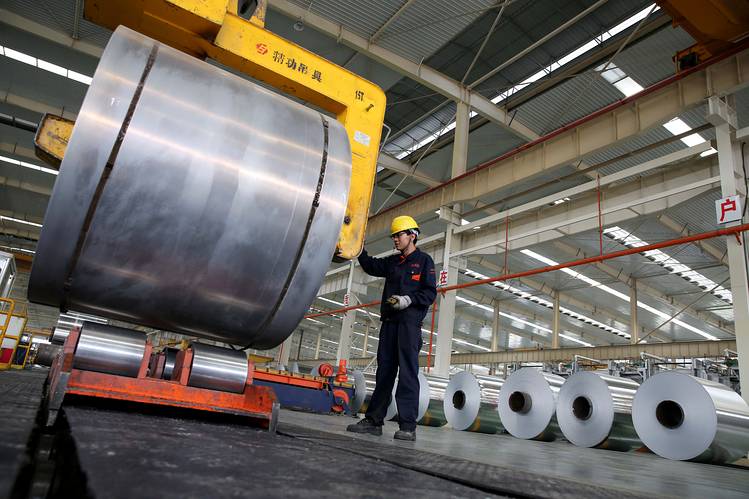
A worker checks aluminium tapes at a Chinese production plant. The price of the metal jumped 30% in 2017. (PHOTO: AFP)
US President Donald Trump announced on Thursday steep tariffs on imported steel and aluminum to protect domestic producers, safeguarding national security, and positioning the US opposite its trade partners.
Trump said the duties of 25 percent on steel and 10 percent on aluminum would be formally announced next week in a meeting with steel and aluminum executives and Cabinet members at the White House.
"We're going to build our steel industry back and our aluminum industry back." Trump believes that the move would protect US manufacturers and secure more jobs in the country. But many economists and experts are afraid that the only possible effect will be on the steel industry.
David Dollar, a senior fellow at the John L. Thornton China Center of the Brookings Institution, said that steel is the crucial input for many other sectors of the US economy, such as automobiles and construction. With steel prices rising, the foreseeable result will be less auto and construction work, and eventually it will cut jobs in these industries.
Another controversial justification for Trump's proposal is on matters related to national security. National security experts argued that steel imports undermine the military's ability in defense, and it's necessary to keep an eye on critical supply chains.
In fact, 70 percent of the steel in the US is domestically produced, with only 30 percent imported. And "almost all the steel used in the defense industry is from the US," Dollar said.
Although the tariffs have not been finalized, the stock market took a dive early Thursday. Many fear that this action will jeopardize relationships with its trade partners.
Most of the imported steel comes from Canada, Brazil, South Korea and Mexico, with three of them having a free trade agreement. Imposing hefty tariffs will risk the US violating the trade agreements, as well as retaliation from its partners.
Analysts say it is possible that Trump is targeting some key steel producing countries as a symbolic act. But if this is the beginning of serious protection, the action may generate a trade war between the US and its partners and will hurt the US economy, and possibly even the world economy.


